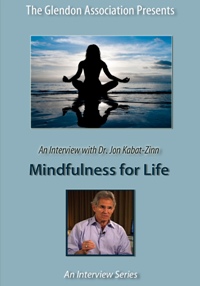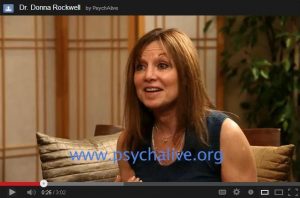Mindfulness – Come to Our Senses
Watch and read an exclusive interview with Dr. Jon Kabat-Zinn.
We often start out with an eating meditation in MBSR where the first thing we do is not sort of sit like a statue in the British Museum or something like that. Although we do sit in sitting meditation, quiet stillness. But we’ll hand out raisins and we’ll eat two raisins and we’ll take maybe twenty minutes to do it. So we’ll take the first raisin and just, maybe close our eyes and feel in our fingers, just one raisin in our hand. And feel it, maybe feel the weight of it, maybe, just all the ridges and troughs and valleys in the raisin. That’s a sense. And we can come to that sense, literally and metaphorically, we say, “come to our senses,” you know, like “wake up, be real, not fall into delusion.” But we can also literally feel the raisin. No one ever does this. But when you begin to do it, you know that raisin, that object, in an entirely different way. Then you might bring it up to the nose. And when you do this with one raisin and you make plenty of time and you’re open and curious and just bringing interest to it as if it was like a laboratory and you were doing an experiment, often you realize, “I don’t think I’ve ever actually let myself smell a raisin.” And it has an aroma. You may hate it. You may like it. You may not care one way or the other. That doesn’t matter. But at least you’re in touch with the smell. So seeing, hearing, smelling, tasting, touching. And touch is not just this. It’s feeling my body in touch with the chair, the air in touch with the skin. Touch is a word that, it’s actually the longest entry of all words in the Oxford English dictionary. More pages than love, than the word “love.”
Order the Full DVD Interview:
 Mindfulness for Life: An Interview with Jon Kabat-Zinn
Mindfulness for Life: An Interview with Jon Kabat-Zinn
In this DVD, Dr. Jon Kabat-Zinn defines mindfulness as a way of “connecting to your life.” He discusses the “hard work” of living in the present moment, the personal and psychological impacts of developing a practice of mindfulness, and the benefits of utilizing mindfulness in therapy. He also touches upon mindfulness in parenting. Drawing upon his years of experience and research in the field of mindfulness, Dr. Kabat-Zinn offers an inspiring and instructive approach for mental health professionals and curious individuals alike.
Tags: jon kabat-zinn, MBSR, mindfulness, mindfulness meditation










Leave a Reply